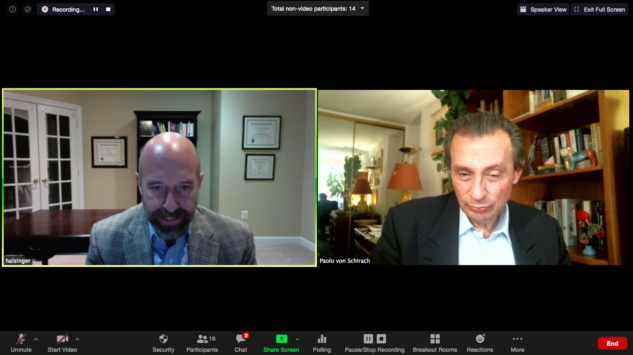Events

COVID-19 ONLINE EVENT SERIES IV: Has US Big Tech Become Too Big?
Efforts to regulate US Big Tech require new antitrust laws
On May 15 the Global Policy Institute and Bay Atlantic University held an on line conversation via Zoom titled:
Has US Big Tech Become Too Big?
Watch the full event video here
Event Summary:
The conversation was with Dr. Hal Singer, Managing Director of Econ One. He is an expert in antitrust and regulation. He has researched, published, and testified on competition-related issues in a wide variety of industries, including media, pharmaceuticals, sports, and finance. He has extensive experience providing expert economic and policy advice to regulatory agencies in the United States and Canada, as well as before congressional committees.
Dr. Singer is also a Senior Fellow at the George Washington Institute of Public Policy and an Adjunct Professor at Georgetown University, McDonough School of Business, where he teaches advanced pricing to MBA candidates. In 2018, the American Antitrust Institute honored Dr. Singer with an antitrust enforcement award for his work in the Lidoderm antitrust litigation.
The event was hosted by Paolo von Schirach, President of the Global Policy Institute and Chair of Political Science and International Relations at Bay Atlantic University.
American high technology giants are the envy of the world. Google, Amazon, Facebook, Apple and others dominate their sectors and world markets. However, this dominance has raised questions about their power when it comes to crushing competitors and also acquiring data from their millions of users and customers and the use of this data in ways that may compromise free market activities, such as promoting products they sponsor to the disadvantage of others. Furthermore, it is very likely that in the aftermath of the COVID recession, Big Tech companies will acquire financially strapped smaller competitors, this way increasing their market dominance. Should the Federal Government launch anti-trust investigations? What about actions taken by European Union competition watchdogs? Ultimately, are consumers better off relying so heavily on these giants?
Dr. Singer argued that in recent years the US Government has not shown great interest in investigating instances that could lead to antitrust actions against US Big Tech. He added that US antitrust laws were conceived and enacted in a different era in which there was a different understanding of what constituted a monopoly and anti-competitive behavior, and how such behavior displayed by big firms would harm markets and consumers. These days, Singer explained, we are dealing with giants that in some cases do not charge anything for their services. Facebook is free; the Google search engine is also free. So, where is the harm to markets and consumers? The harm, according to Singer, is in the ability of these giants to obtain enormous amounts of data from their customers and in their ability to restrict options for consumers since they are able to make it difficult –in fact almost impossible—for smaller competitors to survive, let alone grow enough to become a challenge to their market dominance. We need new laws, argued Singer. New laws that would place the burden of proof on the Tech Giants. They should be compelled to demonstrate that their plans and actions do not harm markets and consumers. Current law creates no such obligations. Singer also pointed out that the US should observe and possible learn a few lessons from the more aggressive enforcement actions promoted by the European Union Competition Authorities. They seem to be focused on efforts to protect consumers, especially their right to privacy.